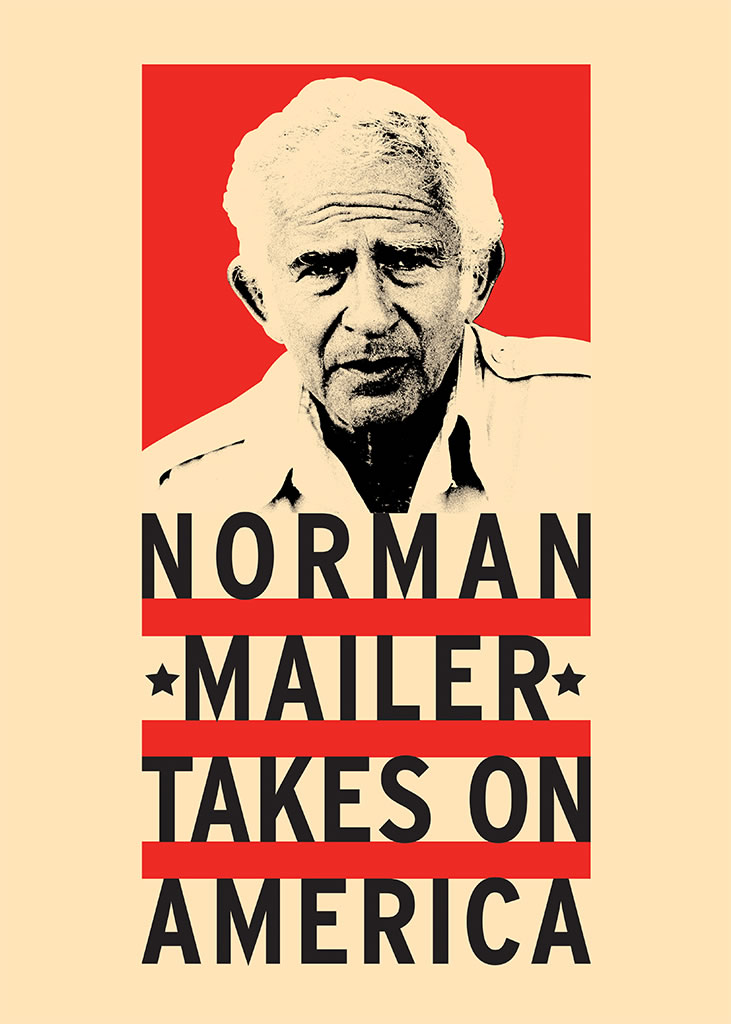Norman Mailer Takes On America
September 5, 2006 – December 31, 2006
Showcasing the Harry Ransom Humanities Research Center's recently acquired Norman Mailer archive, the exhibition "Norman Mailer Takes On America" spans the full range of Mailer's career examined in the context of the cultural and historical events that sparked his imagination.
Featuring more than 200 items—from prize-winning short stories written at Harvard to his most recent works, "Why Are We At War?" and "The Big Empty"—the exhibition runs from Sept. 5 to Dec. 31 at the Harry Ransom Center at The University of Texas at Austin.
The exhibition places Mailer and his works in a political and cultural context, and traces the central role he has played in our awareness and understanding of what critic Morris Dickstein calls the "shocks of history, politics and contemporary life" that shaped the latter half of the 20th century and continue to unsettle the 21st.
Paul Theroux has described the literary world of the two decades following World War II as "an age when writers were powerful, priest-like, remote and elusive. They were risk takers and romantics, lovably disreputable, seldom interviewed but often whispered about."
Not so Norman Mailer, who was a key figure in the transformation of the author into public figure—even celebrity. No other writer more fully captures the high tensions of an age shadowed by the threat of nuclear warfare and dominated by tensions over literary censorship, loyalty oaths, civil rights, social welfare programs and the Vietnam War.
J. Michael Lennon, a Norman Mailer authority, has argued that Mailer "can lay fair claim to being the chief narrative chronicler and interpreter" of post-War America. He cites "a career of length and achievement, full of awards and fights, mistakes and masterpieces" in which Mailer "has challenged, angered, and amazed generations of readers." Lennon concludes, "Perhaps no life in modern American literature has been at once so brilliant, varied, controversial, public, provocative and misunderstood."
Prominent historical events of the last half of the century, such as World War II, McCarthyism and the Cold War, John F. Kennedy's assassination, the moon landing and the Vietnam War, are explored in the exhibition along with such issues as loyalty, civil rights, feminism, identity politics and capital punishment—issues that remain of vital concern to America today.
A variety of public programs complement the exhibition, including the sixth Fleur Cowles Flair Symposium, "The Sense of Our Time: Norman Mailer and America in Conflict," Nov. 9-11. Mailer's works and ideas will be the starting points for speakers at the symposium to explore the cultural conflicts that confronted post-World War II America, from civil rights to war, from sexual politics to the rise of "New Journalism." The symposium includes plenary sessions and panels of scholars, professional writers and critics.
A "Mailer vs. Hollywood" film series features films written and directed by Mailer, including "Beyond the Law" (1968), "Wild 90" (1968) and "Tough Guys Don't Dance" (1986).


